Promising Hearts Read online
Synopsis
The Montana frontier of the 1860s might be dangerous, but only if you have something to lose. Dr. Vance Phelps lost everything in the War Between the States—her professional future, her place in Philadelphia society, and her faith in herself. She travels to New Hero, Montana with no hero of happiness and no desire for anything except forgetting. Mae is a frontier madam, used to standing alone. She fiercely guards the well-being of the lost young women who come under her care—she just never expected one of them to be a doctor, wounded in body and soul. Can two outcasts find refuge in one another’s hearts?
Promising Hearts
Brought to you by
eBooks from Bold Strokes Books, Inc.
eBooks are not transferable. They cannot be sold, shared or given away as it is an infringement on the copyright of this work.
Please respect the rights of the author and do not file share.
Promising Hearts
© 2006 By Radclyffe. All Rights Reserved.
ISBN 13: 978-1-60282-290-0
This Electronic Book is published by
Bold Strokes Books, Inc.
P.O. Box 249
Valley Falls, New York 12185
First Printing: May 2006
This is a work of fiction. Names, characters, places, and incidents are the product of the author’s imagination or are used fictitiously. Any resemblance to actual persons, living or dead, business establishments, events, or locales is entirely coincidental.
This book, or parts thereof, may not be reproduced in any form without permission.
Credits
Editors: Ruth Sternglantz and Stacia Seaman
Production Design: Stacia Seaman
Cover Design By Sheri ([email protected])
By the Author
Romances
Innocent Hearts
Love’s Melody Lost
Love’s Tender Warriors
Tomorrow’s Promise
Love’s Masquerade
shadowland
Fated Love
Turn Back Time
Promising Hearts
When Dreams Tremble
The Lonely Hearts Club
Night Call
Secrets in the Stone
The Provincetown Tales
Safe Harbor
Beyond the Breakwater
Distant Shores, Silent Thunder
Storms of Change
Winds of Fortune
Honor Series
Above All, Honor
Honor Bound
Love & Honor
Honor Guards
Honor Reclaimed
Honor Under Siege
Word of Honor
Justice Series
A Matter of Trust (prequel)
Shield of Justice
In Pursuit of Justice
Justice in the Shadows
Justice Served
Justice For All
Erotic Interludes: Change of Pace
(A Short Story Collection)
Radical Encounters
(A Erotic Short Story Collection)
Stacia Seaman and Radclyffe, eds.
Erotic Interludes 2: Stolen Moments
Erotic Interludes 3: Lessons in Love
Erotic Interludes 4: Extreme Passions
Erotic Interludes 5: Road Games
Romantic Interludes 1: Discovery
Acknowledgments
Innocent Hearts was among the very first “full-length” works I wrote, and I had no aspirations to publish my stories at the time. The characters and I were all “innocent”—I because I had no real concept of what it really took to write a book, and the characters because they lived in a time when there were no words for who they were and how they loved.
Over the years I have come to understand that the story is the heart of any work, but the craft that brings that story to true life is plain old hard work. It can be exhilarating and frustrating from one second to the next. It is always rewarding. I was fortunate to be able to publish a second edition of Innocent Hearts (2005) in preparation for the continuation of the story of these brave, passionate women of New Hope. It was a real pleasure to revisit that work and add the subtle nuances I had missed the first time around.
While Promising Hearts happens to be set in a particular time in American history, romance and love are universal and eternal. It was a joy for me to write this book, and I believe the love and passion between these women will transcend place and time. I admit, however, to being a lifelong fan of the “Western”, so this one was doubly fun to do.
Thanks to my tireless beta readers—Connie, Diane, Eva, Jane, Paula, RB, and Tomboy, my editors Ruth and Stacia, and Sheri, artist extraordinaire. And to Lee, for all the promises of the heart. Amo te.
Radclyffe 2006
Dedication
For Lee
From the Heart
Chapter One
Appomattox Court House, Virginia
April 9, 1865
The morning of the battle dawned gray and cold. Dr. Vance Phelps surveyed the low rise extending southwest from Appomattox Court House where Lt. General Ulysses S. Grant had deployed the Army of the Potomac after forcing General Robert E. Lee and the Army of Northern Virginia to abandon Richmond. Only a few hundred yards away, 30,000 rebel troops, all that remained of Lee’s war-weary forces, prepared to mount their assault. Nearby, the assistant surgeons milled in a restless knot, awaiting orders as to where to establish the regimental field hospital. Vance was the senior surgeon by virtue of having served for nearly three years in the Pennsylvania 155th Volunteers—longer than any of the other medical personnel—and by being the only formally trained surgeon in the division. Many of the others had a few weeks of apprenticeship or no medical training at all. They’d learned the rudiments of their trade under fire.
“There.” Vance pointed to a dense copse of trees on a knoll directly behind the close rows of muzzle-loading howitzers manned by Ord’s 24th Corps. From long experience in skirmishes and battles too numerous to count, Vance knew that before long the air would roil with the clouds of lung-singeing black smoke spewed out from artillery and small arms fire. The walking wounded and stretcher bearers would have a hard time finding the aid station unless it was close to the battle line and clearly visible. “Set up the tents in front of that hedgerow.”
“Gonna make a mighty fine target up there, Doc,” noted Milton Cox, the sergeant who served as her chief hospital steward. In his mismatched uniform of regulation Union blue trousers and a frayed, faded yellow shirt of homespun cotton that he’d most likely stolen off the clothesline of some unsuspecting Southern housewife, he looked more like a vagabond than a seasoned veteran.
“Might be,” Vance agreed, her black eyes holding just a glint of humor, “if Lee’s men are so unmannerly as to fire upon the hospital. But I figure we’ll have the strongest section of the Union line in front of us, and just maybe the ambulance corps will be able to find us once the shooting starts.”
The sergeant grinned, showing an uneven row of tobacco-stained teeth. “Well, you’ve been right more times than not.”
Just lucky, Vance thought, swiping the sleeve of her loose blue officer’s coat across the icy sweat on her forehead. Sometime during the night, when she’d lain awake on a thin blanket in the back of one of the medical supply wagons contemplating the upcoming battle, the congestion in her chest had relented enough for her to breathe without the stabbing pain that had been present for the last week. The cough and chills persisted, a remnant of the pneumonia she had been fighting since February. Now, her once long and slender form verged on gaunt, though her skin was tanned and roughened by sun and wind, her muscles sinewy from constant labor. As Grant’s forces had cut deep into the
South, the warm April days and the humid air of Virginia had helped ease the constriction in her lungs. She counted herself lucky not to have succumbed to consumption or dysentery or some of the other diseases that had taken so many on both sides of the war.
Not for the first time, she was bone-grateful for the good health and regular food she’d enjoyed before disguising her sex and enlisting in the newly formed U.S. Army Medical Corps in 1862. After so many losses at the Battle of Bull Run, when thousands died from lack of access to medical treatment and the general dearth of physicians among the regiments, recruiters accepted anyone with the vaguest sort of medical training. No one looked carefully at the credentials, or the gender, of the inductees.
“We’re low on chloroform,” Milton said.
Vance nodded, considering herself fortunate that they had any of the fairly new substance at all. Rumor had it that the Southern surgeons had been making do with ether for months, a far less reliable anesthetic. “We’ve plenty of morphine and laudanum if we run out of the anesthesia.”
“Well, if I need any cuttin’ done, I want you to be the one doin’ it.” Milton turned his head and spat a stream of dark brown tobacco juice. “Ain’t none of the others as quick and clean as you.”
“Thank you, Milton,” Vance said, having long since lost count of the hundreds of limbs she had removed. “Make sure you keep the basin of carbolic full and close by today.”
“Yep. Don’t suppose we’ll be runnin’ out of that real soon, seein’ how you’re the only one usin’ it.”
Vance knew that Milton, along with her fellow surgeons, thought the practice of dipping her hands into the caustic liquid between surgeries was not only time consuming, but foolish superstition. Nevertheless, Dr. Lister’s theories about sanitation made sense to her. She thought of how many soldiers she had lost, not to injury, but to gangrene. Far more than she had saved. Her face, thinned down to bone from subsisting on little more than hardtack and salt-pork for months, grew grimmer still. “There’s little enough we can do for them. I don’t see that it will hurt.”
“Right enough.” As if recognizing Vance’s dark mood, Milton said quietly, “This war can’t last much longer. Not with Lee’s forces split and us between ’em.”
“I hope you’re right. There’s been far too much death.” With a sigh, Vance straightened her shoulders and turned to check the progress of the soldiers assigned to the ambulance corps who were erecting the hospital tent and bringing up the supply wagons. Her operating table consisted of a wooden door removed from a grand plantation house balanced across two empty ammunition barrels. Her instruments were her own, brought from Philadelphia when she’d left her post at the hospital to take her skills where they were most needed. Those she cleaned and cared for herself, carrying them in an engraved wooden case that had been presented to her by her father the day she graduated from the Women’s Medical College of Pennsylvania. That day in 1861, she’d imagined a life very different than this. But since then, everything had changed.
The sound of small arms fire drew her from a past that had seemed so certain into the present, to a life that might now be measured only in fleeting moments. An eerie sound drifted on the pristine whiffs of white smoke that rose into the air beyond the Union lines like so many puffs of breath. A keening, undulating cry of defiance and, oddly, joy. The Rebel Yell.
“Here they come,” Milton whispered with near reverence.
“Yes,” Vance said, striding quickly toward the hospital staging area. She removed her coat and rolled back the cuffs of her white cotton shirt as she walked. Once there, she retrieved her surgical kit from the wagon and spread her instruments out on a rough pine bench next to the makeshift operating table. She doubted she would need more than the probes, the amputation knife, and the saw for the first round. Minnie balls and cannon canisters left her little choice but to amputate. She dipped her hands into the carbolic acid and shook off the excess, scanning the nearby rise for the first sign of wounded.
*
“Look smart, men,” General Philip Sheridan exhorted as he galloped up and down the forward line of the first of his three cavalry divisions, saber rattling against his thigh in its gold-braided scabbard. “Lee’s infantry will be upon us before the sun burns the dew from the grass.”
Sheridan’s line of mounted cavalry, poised for the signal to strike, shifted in the sunlight like a huge black snake, the horse soldiers and animals alike agitated by the sound of weapon fire and men screaming. The light artillery, mounted on wooden platforms, bucked and belched fire as they disgorged their deadly hail of grapeshot. The ground trembled with the force of thousands of feet pounding the hard-packed red earth, and the air shimmered with the ominous thunder of war.
Vance heard the bugler signal the charge, and Sheridan’s cavalry stormed toward the advancing rebel lines. Then from out of the smoke and shifting shadows she saw the first stretcher bearers emerge, running as fast as they could with their burdens of damaged humanity in tow. When the first man was laid upon her table, the battle receded from her consciousness. There were only the wounded now.
“Change the saw blade,” Vance said as she turned from the table and immersed her hands in the blood-tinged antiseptic in the basin balanced on a tree stump by her right side.
“Ain’t got but two left,” Milton said as he sluiced the blood and gore off the wooden tabletop with a bucket of water.
Vance looked at the line of waiting wounded. Those who could walk were sitting under the shelter of the trees, bandaging themselves or their friends. She might get to some of them before the day was over, but those who weren’t seriously injured would wander back to their regiments before she ever had a chance to tend them. They knew as well as she that there was little she could do beyond what they had already done for themselves. Those who needed her services were the soldiers with major injuries to body or limb, and these waited on the bare ground in a dense semicircle that stretched as far she could see.
“We’ll make do with the one we’re using for now,” she said. It had taken her a little over fifteen minutes to amputate the last leg because the saw blade was so dull she’d had to wrench it through the bone by sheer force for the last half inch. She’d always been active, eschewing the carriage to walk whenever she could and working in the gardens that surrounded her family home in the spare moments between her studies. She was strong enough in body to do what needed to be done, but her heart suffered. “Next.”
The boy looked no older than fourteen and might not have been, because as the war had dragged on, anyone who could carry a rifle and declared they were sixteen was welcome in the ranks. The cannonball had struck him just below the knee, destroying most of his lower leg bone and leaving only a mangled mass of muscle connected to his foot. She looked into the boy’s eyes.
“I’m going to remove your leg, son, and you’re going to live.”
Vance nodded to Milton, who stood to her left with a cloth and a can of chloroform in his hand, and as he pressed the anesthetic to the boy’s face, she tightened the leather strap around his lower thigh with one firm yank. Once again, she picked up the amputation knife bare-handed and swiftly cut down to bone, four inches below his knee. With a circular rotation of her wrist, she completed the incision around the stump and dropped the knife on the table in exchange for the saw. It should have taken her less than two minutes to transect the bone, but it required twice that long to worry the blunt teeth through the young healthy leg. When the destroyed portion fell onto the door that served as her table with a thump, Milton picked it up and tossed it onto a nearby pile of amputated limbs.
“Damn flies,” Vance muttered, waving at the ever-present insects that buzzed around her head and the boy’s motionless body, obscuring her vision. Milton passed her a straight needle threaded with black silk, and she rapidly located and sewed closed the major vessels in the stump. Then she covered the end of the exposed bone with a flap of skin and muscle and swiftly sutured it in place to complete the amput
ation. Somewhere behind her she could hear men shouting, even above the cannon barrage and general cacophony of battle.
“Move him to the evacuation wagon. Next.”
When another body did not immediately appear before her, she looked up questioningly. Sweat and blood spatter ran into her eyes and she blinked, then automatically wiped her face on her sleeve. Seeing Milton gesticulating wildly as a lieutenant on horseback leaned down and shouted something at him, Vance called out, “What is it?”
“Lee has broken Sheridan’s line,” Milton called on the run. “We’re to fall back.”
Vance looked at the wounded covering nearly every inch of ground around her and shook her head. “We can’t move all these soldiers.”
“Then we’ll leave them for Lee’s surgeons,” Milton said, hurriedly gathering drugs and instruments.
“No. Lee’s surgeons will take care of their own first, and these men need attention now. You go. I’ll stay.”
Milton stopped what he was doing and stared at Vance. “If you stay, they’ll make you a prisoner.”
“That may be. But I’m a surgeon and I’ll be valuable to them. Go on, Sergeant. Leave me enough medicine for these men and go.”
“I don’t think I can do that, Doc.” Milton moved up beside her. “We fought together side by side these three years. Wouldn’t be right. Besides, my mama didn’t raise me to leave a woman to stand alone when times got hard.”
Vance stared into his placid brown eyes. “You know?” He nodded. “Does everyone?”
“Can’t say. You wouldn’t be the first, and most choose not to remark on it, even if they know.” He shrugged. “Seen some pretty damn good fighters, myself. And never a better surgeon than you.”

 Secrets of the Heart
Secrets of the Heart Clinical Trials
Clinical Trials Blessed Benediction
Blessed Benediction Happy, Happy Birthday, Baby
Happy, Happy Birthday, Baby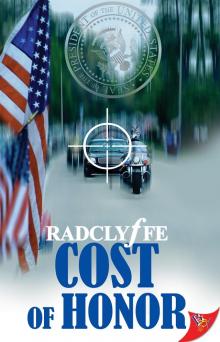 Cost of Honor
Cost of Honor Love on the Night Shift
Love on the Night Shift Top of the Class & Bonus Night
Top of the Class & Bonus Night You Don’t Bring Me Flowers
You Don’t Bring Me Flowers When Dreams Tremble
When Dreams Tremble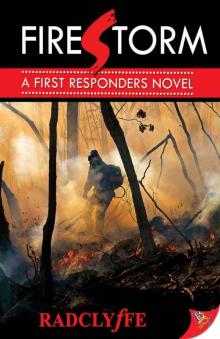 Firestorm
Firestorm The Color of Love
The Color of Love Women of the Dark Streets
Women of the Dark Streets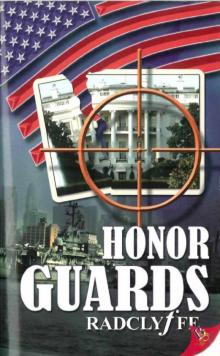 Radclyffe - (Honor 4) - Honor Guards
Radclyffe - (Honor 4) - Honor Guards Honor 03 - Love And Honor
Honor 03 - Love And Honor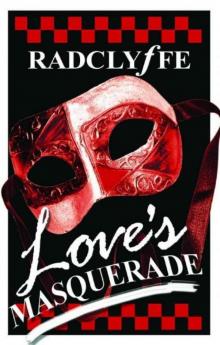 Love's Masquerade
Love's Masquerade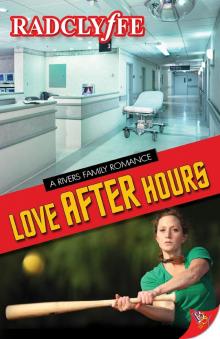 Love After Hours
Love After Hours OMGQueer
OMGQueer A Matter of Trust
A Matter of Trust Honor Under Siege
Honor Under Siege Best Lesbian Romance 2009
Best Lesbian Romance 2009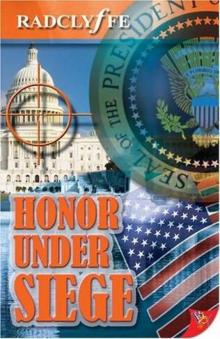 Honor 06 - Honor Under Siege
Honor 06 - Honor Under Siege Best Lesbian Romance 2012
Best Lesbian Romance 2012 Breathless
Breathless Nick of Time
Nick of Time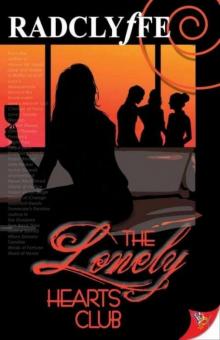 The Lonely Hearts Club
The Lonely Hearts Club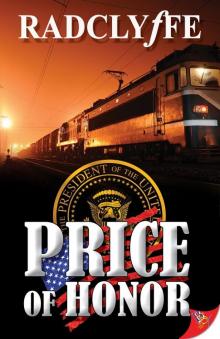 Price of Honor
Price of Honor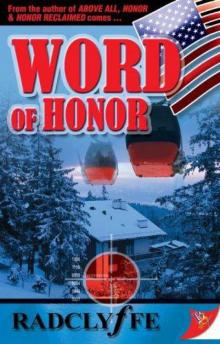 Word of Honor fr-7
Word of Honor fr-7 Winds of Fortune (Provincetown Tales Book 5)
Winds of Fortune (Provincetown Tales Book 5)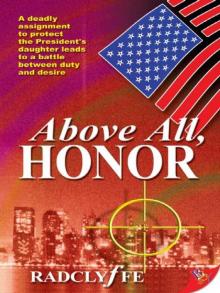 Above All, Honor
Above All, Honor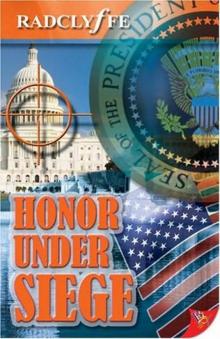 Radclyffe - Honor 06 - Honor Under Siege
Radclyffe - Honor 06 - Honor Under Siege Distant Shores, Silent Thunder
Distant Shores, Silent Thunder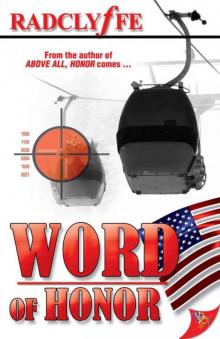 Word of Honor
Word of Honor Word Play
Word Play Fated Love
Fated Love Homestead
Homestead Radical Encounters
Radical Encounters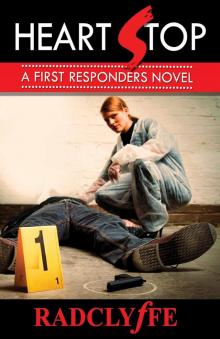 Heart Stop
Heart Stop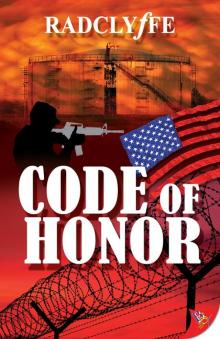 Code of Honor
Code of Honor Myth and Magic
Myth and Magic Wild Shores
Wild Shores Oath of Honor
Oath of Honor Desire by Starlight
Desire by Starlight Love Burns Bright
Love Burns Bright Promising Hearts
Promising Hearts Helplessly Hers
Helplessly Hers Love & Honor h-3
Love & Honor h-3 All About Us
All About Us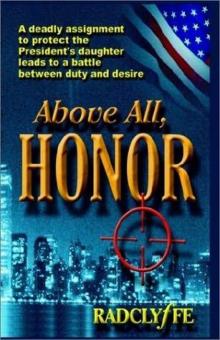 Honor 01 - Above All Honor
Honor 01 - Above All Honor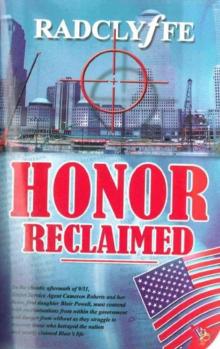 Honor 05 - Honor Reclaimed
Honor 05 - Honor Reclaimed Innocent Hearts
Innocent Hearts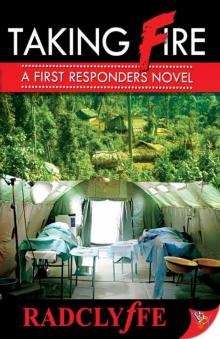 Taking Fire
Taking Fire In Pursuit of Justice
In Pursuit of Justice Love's Melody Lost
Love's Melody Lost Passion's Bright Fury
Passion's Bright Fury Returning Tides
Returning Tides Change of Pace
Change of Pace Safe Harbor
Safe Harbor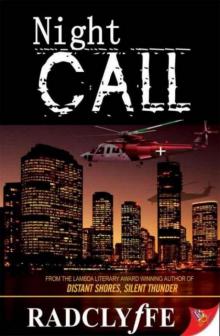 Night Call
Night Call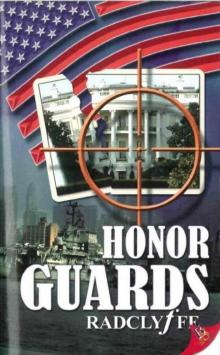 Honor 04 - Honor Guards
Honor 04 - Honor Guards Honor Bound
Honor Bound Cruising the Strip
Cruising the Strip Above All, Honor h-1
Above All, Honor h-1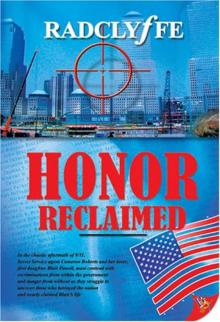 Honor Reclaimed
Honor Reclaimed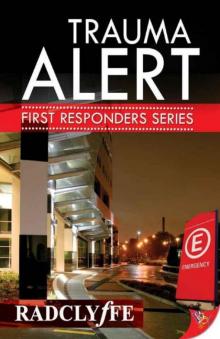 Trauma Alert
Trauma Alert Love On Call
Love On Call Best Lesbian Romance 2014
Best Lesbian Romance 2014 Discovery
Discovery shadowland
shadowland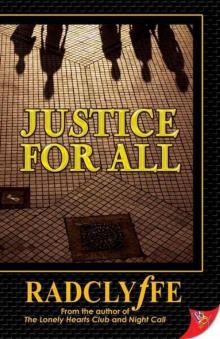 Justice for All
Justice for All Best Lesbian Romance 2011
Best Lesbian Romance 2011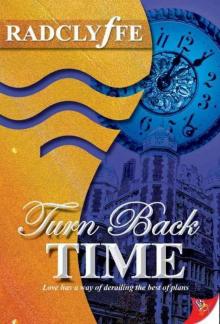 Turn Back Time
Turn Back Time Winds of Fortune
Winds of Fortune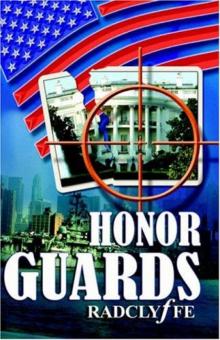 Honor Guards
Honor Guards Justice in the Shadows
Justice in the Shadows Love's Tender Warriors
Love's Tender Warriors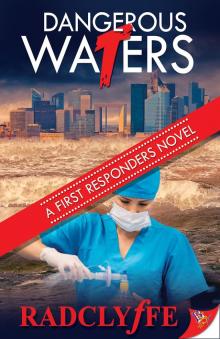 Dangerous Waters
Dangerous Waters First Sight
First Sight By the Light of the Moon
By the Light of the Moon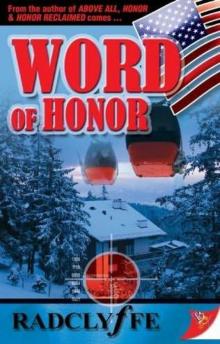 Honor 07 - Word Of Honor
Honor 07 - Word Of Honor Tomorrow's Promise
Tomorrow's Promise Amor and More
Amor and More Best Lesbian Romance 2010
Best Lesbian Romance 2010 Sheltering Dunes (Provincetown Tales Book 7)
Sheltering Dunes (Provincetown Tales Book 7) Love And Honor
Love And Honor Secret Hearts
Secret Hearts Prescription for Love
Prescription for Love Passionate Rivals
Passionate Rivals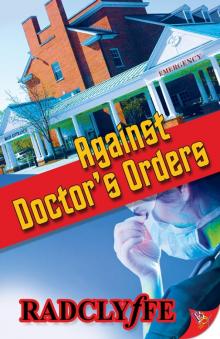 Against Doctor's Orders
Against Doctor's Orders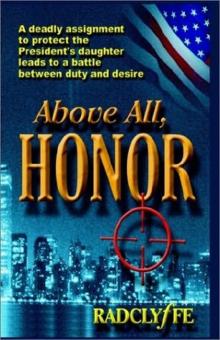 Radclyffe - Honor 01 - Above All, Honor
Radclyffe - Honor 01 - Above All, Honor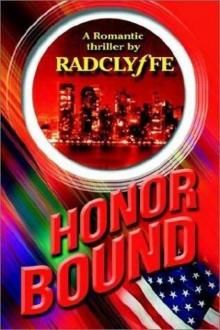 Honor 02 - Honor Bound
Honor 02 - Honor Bound Beyond the Breakwater
Beyond the Breakwater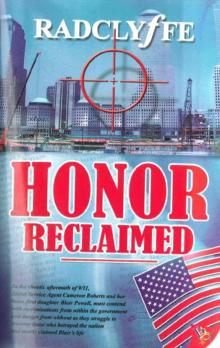 Radclyffe - (Honor 5) - Honor Reclaimed
Radclyffe - (Honor 5) - Honor Reclaimed Storms of Change
Storms of Change Honor Bound h-2
Honor Bound h-2 Justice Served
Justice Served Sheltering Dunes
Sheltering Dunes Best Lesbian Romance of the Year
Best Lesbian Romance of the Year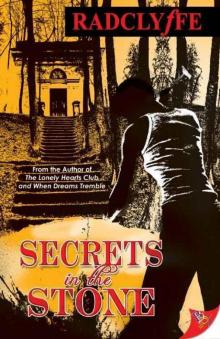 Secrets in the Stone
Secrets in the Stone